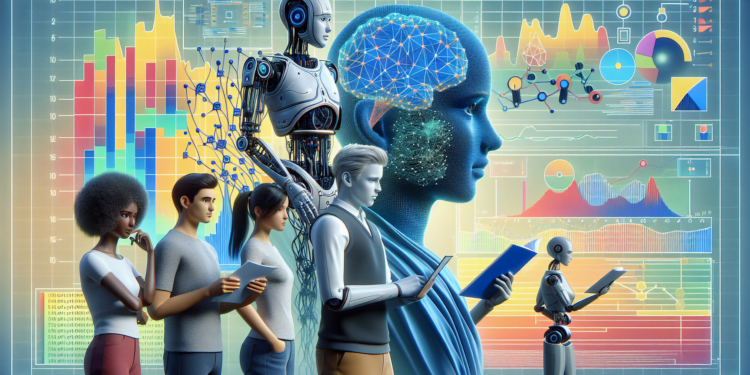Artificial intelligence (AI) has undergone a significant metamorphosis over the past few decades, evolving from an emerging field into one of the main drivers of innovation across multiple sectors. A particularly intriguing area is unsupervised representation learning, a technique that enables machines to automatically discover the necessary representations for feature detection or classification from unlabeled data. This methodology is crucial, as most of the data in the real world does not come with clear annotations.
To understand the importance of this area, we must first recall the theoretical foundations that underpin it. Autoencoders, for example, are a class of neural networks capable of learning efficient representations (encodings) from unlabeled data sets, minimizing the loss of information between the input and the reconstructed output. The optimization using cross-entropy or Kullback-Leibler divergence has proven to be especially significant in the efficiency of autoencoders.
Following in this vein, the concept of generative adversarial networks (GANs) represents another qualitative leap by introducing a minimax game approach, where two networks, one generative and the other discriminative, simultaneously compete and cooperate, thus refining the latent representations of the data.
From a more recent perspective, predictive coding models offer a transformative view by proposing that the human brain could understand the world by learning to predict it. This has inspired the development of architectures such as predictive networks, which learn representations by trying to anticipate the next input based on previous ones.
The integration of attention into unsupervised representation learning models has also been an intense area of research. The novel Transformer architecture, which utilizes attention mechanisms to weigh the influence of different parts of the input, has yielded notable advances in natural language processing (NLP) tasks and is beginning to be applied in image and video processing as well.
One of the most notable contributions to the field comes from the introduction of variational autoencoders (VAEs), which combine neural networks with variational Bayesian inference, allowing for the generation of new data instances while learning their distribution. The key difference between VAEs and traditional autoencoders lies in how the VAE learns a probabilistic representation, which facilitates tasks such as generation and editing of data instances.
In terms of emerging practical applications, the ability to understand and generate images, text, and voice with little or no supervision opens up fields ranging from improving data compression algorithms to the development of more sophisticated personal assistants and virtual agents.
GANs have demonstrated their potential in creating visual artifacts, including the generation of hyperrealistic human faces, while the Transformer architecture, behind models like BERT and GPT, has revolutionized the NLP field, enabling highly advanced systems for machine translation, text summarization, and content generation.
Unsupervised representation learning has also had a disruptive impact on the surveillance and security industry, where sophisticated algorithms for recognition of audible or visual patterns facilitate anomaly detection with minimal human intervention. In the field of medicine, the label-free segmentation of medical images and the detection of interest points in large datasets of patient data demonstrate the versatility and predictive power of this approach.
Examining relevant case studies, we can refer to advances in understanding proteins with DeepMind’s AlphaFold, which has developed a system based on unsupervised representation learning capable of predicting the three-dimensional structure of proteins with unprecedented accuracy.
Looking to the future, it is plausible to project that unsupervised representation learning will continue to be a fertile area of innovation. The development of algorithms that can handle the growing complexity of available data, closer integration with robotics for skill acquisition through observation, and advancement toward general artificial intelligence (AGI) are promising directions where research could yield transformative results.
In conclusion, unsupervised representation learning not only provides a solid platform for understanding and addressing many of the most pressing challenges in AI but also lays the groundwork for future breakthroughs that could redefine what we consider possible in terms of machine learning and large-scale data processing.






















